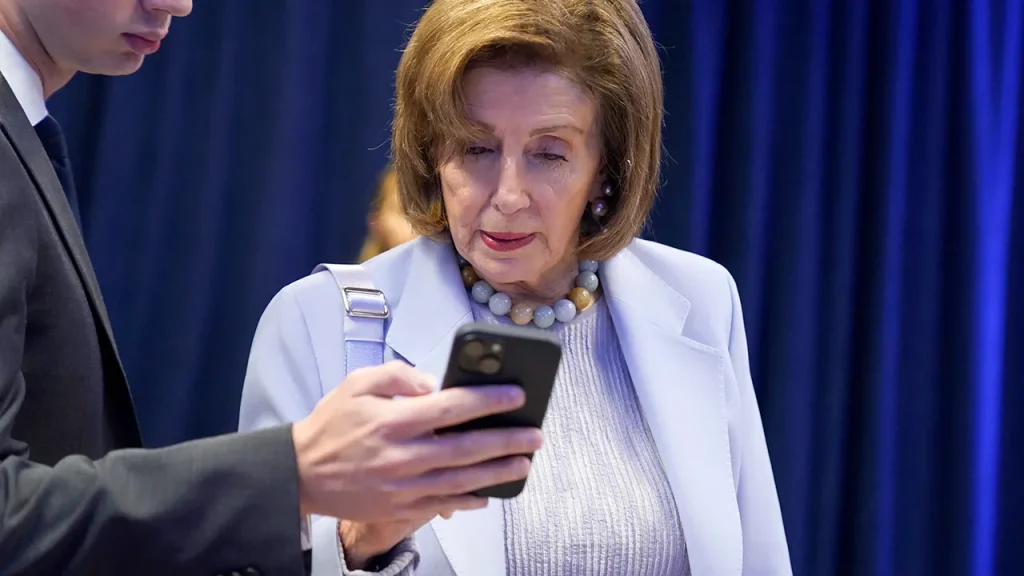Pelosi’s Controversial Remarks About Trump Ignite Political Firestorm
Former House Speaker Nancy Pelosi unleashed a wave of controversy when she described former President Donald Trump as “a vile creature, the worst thing on the face of the earth” during a recent CNN interview. The pointed remarks quickly went viral, sparking immediate backlash from conservatives who accused Pelosi of employing the exact kind of inflammatory rhetoric that many believe has contributed to political violence in America. When pressed on why she held such a view of Trump, Pelosi didn’t hesitate to elaborate, claiming he failed to honor the Constitution, transformed the Supreme Court into a “rogue court,” effectively abolished the House of Representatives, chilled press freedoms, and intimidated legal immigrants. The stark characterization represents one of the most unvarnished public criticisms Pelosi has leveled against her longtime political adversary.
The reaction on social media was swift and fierce. Conservative commentators and Republican strategists condemned Pelosi’s comments as dangerously dehumanizing. Piers Morgan questioned whether Pelosi truly believed Trump was worse than terrorist organizations or dictatorial leaders like Putin and Kim Jong-Un, suggesting that Democrats’ habit of “over-demonising Trump” explains their current polling struggles. Other prominent voices, including NRCC National War Room director Ben Petersen and former Trump campaign operative Steve Cortes, characterized Pelosi’s remarks as emblematic of Democrats’ broader pattern of extreme rhetoric toward political opponents. When Fox News Digital reached out for comment, Pelosi’s office responded not with an explanation or moderation of her comments, but with a screenshot of a Newsweek article headlined “Trump Launches Attack on Nancy Pelosi: Disgusting Degenerate,” suggesting a tit-for-tat approach to the escalating personal attacks.
The controversy comes at a significant moment in Pelosi’s storied political career. NBC News reported that the California Democrat is expected to make an announcement about her future after Election Day, with unnamed sources suggesting she plans to retire at the end of her current term. Pelosi, who made history as the first female Speaker of the House and has been one of the most influential Democratic leaders of the modern era, has remained a powerful force in American politics despite stepping down from leadership positions following the 2022 midterm elections. When questioned about the retirement rumors, however, her spokesperson made no mention of her stepping aside, instead emphasizing that Pelosi remains “fully focused on her mission to win the Yes on 50 special election in California.”
This latest controversy highlights the increasingly bitter and personalized nature of America’s political discourse. The exchange between Pelosi and Trump represents more than just a clash between two political figures—it reflects the deep polarization that has come to define contemporary American politics. Critics argue that language describing political opponents as “vile” or “the worst thing on earth” contributes to a climate where compromise becomes impossible and where political disagreements are framed not as differences of opinion but as existential battles between good and evil. Supporters of Pelosi might counter that her characterization is merely an honest assessment of a figure they view as genuinely dangerous to democratic norms and institutions.
The timing of Pelosi’s remarks is particularly notable given the broader context of American politics in 2023-2024. As the country grapples with significant challenges at home and abroad, political leaders’ rhetoric has increasingly come under scrutiny for its potential to either heal divisions or deepen them. Critics suggest that Pelosi’s comments represent a missed opportunity to model the kind of measured discourse many Americans claim to want from their leaders. Supporters might argue that her candor is justified given what they perceive as the genuine threat posed by Trump’s potential return to power. Either way, the exchange demonstrates how difficult it has become to separate policy disagreements from personal animosity in today’s political climate.
Regardless of one’s political perspective, the heated exchange between two of America’s most prominent political figures serves as a reminder of how far the country has traveled from an era where political opponents could vigorously disagree while maintaining a baseline of mutual respect. As Pelosi potentially approaches the end of her remarkable congressional career and as the nation once again faces the possibility of a Trump presidency, the incident raises important questions about the kind of political culture Americans want to cultivate. Can a democracy function effectively when its leaders view their opponents not merely as wrong but as “vile” or “degenerate”? Can meaningful compromise and governance occur in a climate of such intense personal antipathy? These questions remain unanswered as the nation continues to navigate through one of the most divisive periods in its modern history.


